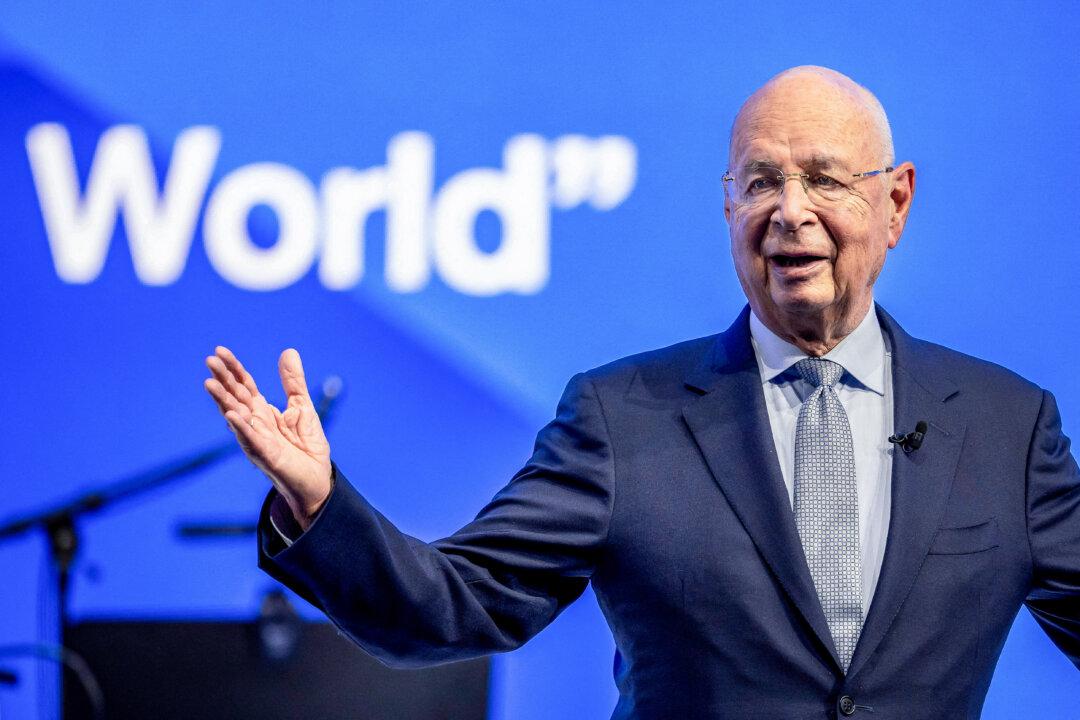World Economic Forum (WEF) founder Klaus Schwab has resigned from his position as chairman of the organization, according to an announcement issued on April 21.
“Following my recent announcement, and as I enter my 88th year, I have decided to step down from the position of Chair and as a member of the Board of Trustees, with immediate effect,” Schwab said in a statement.





